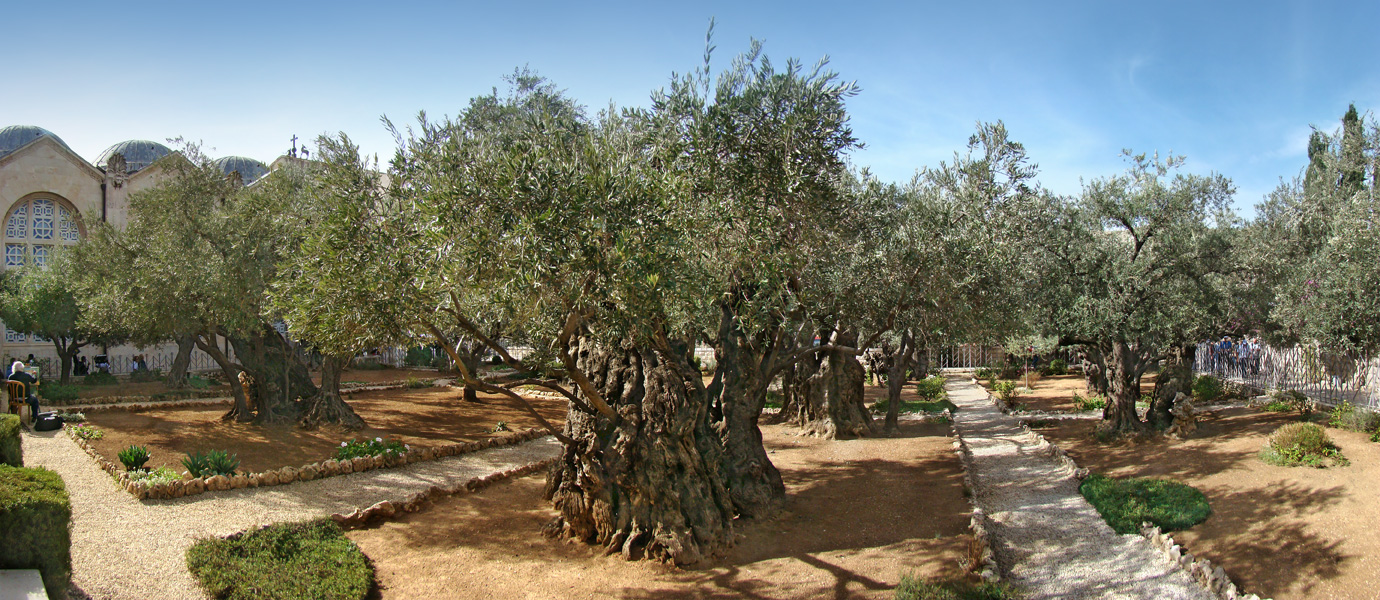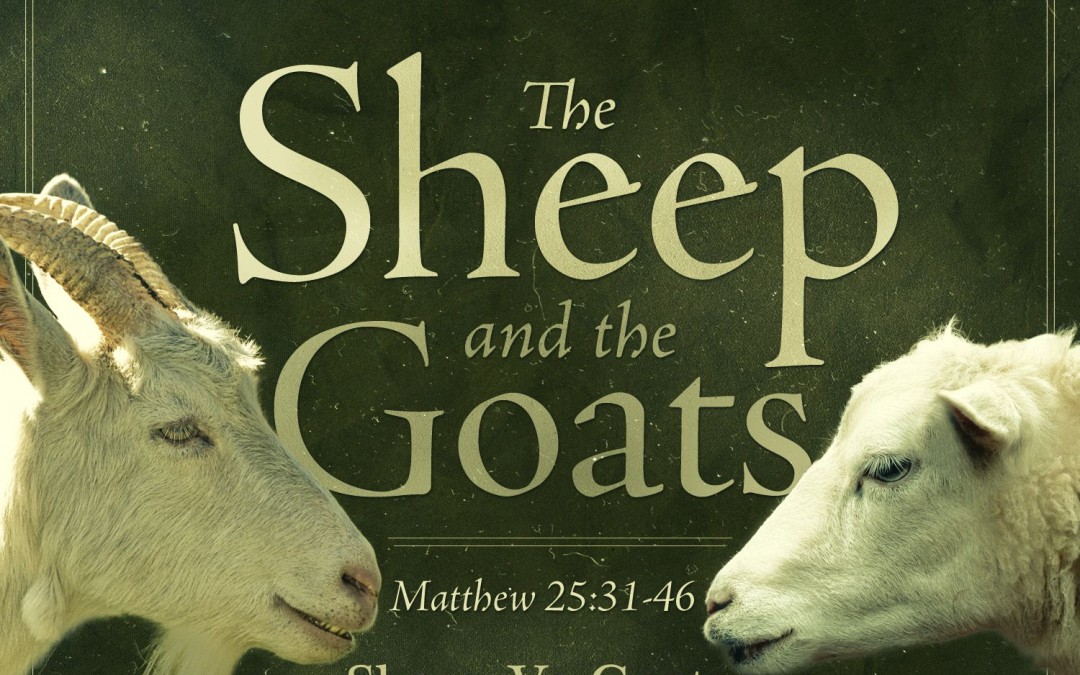Matthew 25:31–46
Key Verse: 25:40
“The King will reply, ‘Truly I tell you, whatever you did for one of the least of these brothers and sisters of mine, you did for me.’”
Real, or fake? Sometimes it can be hard to tell the difference, right? When it’s about money, or jewels, “real or fake” is a really important question. For God, when it’s about people, it’s THE question. God is looking at us to see if we’re real, or fake. He especially wants to know: are we real followers of Jesus, or fake ones? We’ve been studying the last major discourse of Jesus in Matthew’s Gospel, chapters 23–25. In chapter 23 Jesus blasts the Pharisees and teachers of the law for being hypocrites, fake religious leaders. In chapter 24 he warns about fake messiahs and fake signs of the end of the age. In chapter 25 he’s been telling parables about people waiting for his Second Coming—five virgins were real and five were fake; two servants were real and one was fake. Today’s passage is Jesus’ last parable about this. It’s the parable of the sheep and the goats. The sheep represent real followers of Jesus, and the goats represent fake ones. In this study we want to learn what it means to be real followers of Jesus, and if we are, how he expects us to be living our lives while we’re on this earth. Many people are good at faking: they fake like they read the book, they fake like they care, they fake like they’ve been doing what they’re supposed to. But when Jesus comes back, as he promised, nobody will be able to fake it. May God open our hearts and speak to us personally through his word today.
Read verse 31. Jesus repeatedly has been describing his Second Coming like this (16:27; 19:28). He’s the Son of Man, the suffering servant of all people, the real Messiah prophesied about in the Old Testament. But people can be so cynical and sarcastic. Driven by their own worldly, sinful desires, they mock the Christian faith, asking, “Hey, it’s been 2,000 years! Where is this ‘coming’ he promised? Everything goes on as it has since the beginning of creation” (2Pe3:3,4). Actually, during his earthly ministry proud people looked at Jesus from a human point of view and despised him as nothing but a country carpenter. They thought they could crucify him, throw him away and be rid of him. But one day, Jesus, the Son of Man, will come in his glory, and all the angels with him, and he will sit on his glorious throne. Every eye will see him, even those who pierced him (Rev1:7; cf. Zech12:10). People think they can get away with rejecting him, but on that day Jesus will be sitting on his glorious throne as the Judge of the living and the dead (2Ti4:1; 1Pe4:5). It’s not a bunch of cleverly devised stories (2Pe1:16); someday it’s going to be so real.
Read verses 32,33. The first thing we notice here is that people from all the nations will be gathered before him. It’s going to be a universal judgment of all people who ever lived. There are so many kinds of people in this world, and so many distinctions that really matter to so many people—what you look like, how much money you have, what family you came from, where you went to school, what possessions you have, etc. But at that time, there will be only two kinds of people: sheep and goats, and that’s all that will really matter.
Let’s think for a moment about this imagery of sheep and goats. Why did Jesus use it? It suggests people’s characters. Goats tend to be stubborn, independent and hard to work with. Sheep are gentle, obedient and follow well. Some people may seem like goats in the way they relate to other people, but they’re like sheep in the way they relate to Jesus. Others may seem like sheep in the way they relate to others, but they’re like goats to Jesus because they’re too stubborn in their own ideas to listen to him.
Secondly, we notice here that Jesus can tell a sheep from a goat. He knows exactly how to identify each person. We get deceived by appearances, or by how well people talk. But Jesus can immediately tell who is who. He said elsewhere, “I know my sheep and my sheep know me” (Jn10:14). Of course it’s important to be inclusive, to welcome all kinds of people. But when Jesus comes again, it’s going to be all about separation: separating the sheep from the goats. Matthew has been emphasizing this with various imagery: Jesus will separate the wheat from the chaff (3:12), the wise from the foolish (7:24–27), the wheat from the weeds (13:42,43), the good fish from the bad fish (13:47–50), those who are ready from those who aren’t (24:40,41,45–51; 25:1–30). Why the emphasis on separation? Jesus explained in 13:41: “The Son of Man will send out his angels, and they will weed out of his kingdom everything that causes sin and all who do evil.” These are the people who never repented and accepted Jesus’ grace and let him change them. In light of today’s passage, this seems to be describing the real nature of the goats. This is why Jesus warned us earlier: “Watch out for false prophets. They come to you in sheep’s clothing, but inwardly they are ferocious wolves” (7:15). In this world it seems that people can get away with faking like they are Jesus’ sheep, but in the end, Jesus will expose them all for who they really are. And on that day it will be too late for second chances.
As Jesus said so many times before, on Judgment Day people will get their just reward (5:12,46; 6:1,2,4–6,16,18; 10:41,42). He said in 16:27 that on that day “he will reward each person according to what they have done.” He meant not what each person wanted to do, but what each person actually did. If we actually lived in a way that is pleasing to God, what will our reward be? In last week’s passage Jesus described it as God’s personal affirmation: “Well done, good and faithful servant! You have been faithful with a few things; I will put you in charge of many things. Come and share your master’s happiness!” (25:21) Today, Jesus again describes God’s reward for those who lived like they were really his sheep.
Read verse 34. Jesus calls these people “you who are blessed by my Father.” Though they’re identified as the “sheep,” he doesn’t look down on them as lesser than him; in fact, he looks up to them with great respect. He also says they have an “inheritance.” This word implies that they have a right to it, they have it coming to them—just as children claim an inheritance from their parents.
What’s their “inheritance”? Jesus says it’s “the kingdom.” What a reward! We live in a wage-earning society in which we expect to get what we work for. We want equal pay for equal work, and we want things to be fair. So what could be the reward for living for Jesus and obeying him? A big bonus? A nice car, a fine house? People writing something nice about us? Jesus says God’s reward will be way more than that; it will be the kingdom “prepared for you since the creation of the world.” How could we ever earn or deserve such a kingdom? We can’t. We receive this kingdom only by God’s amazing grace. In fact, he gave it to us even before the creation of the world, before we did anything good or bad. God has been preparing this kingdom for his people all throughout history. It’s an eternal kingdom, and way better than any glory on earth.
But why does Jesus describe it like this here? Surely it’s because he knew his followers would face all kinds of persecution. Because they actually followed Jesus, their lives would be unstable. They would be slandered as cult members, heretics or lunatics. Some would have to flee for their lives, losing all their possessions (Heb10:32–35). They would not be building up their lives in this world, but losing their lives for Jesus and the gospel (16:25,26). But Jesus says God the Father is going to reward such people with “the kingdom” prepared for them “since the creation of the world.” Wow! Everything in this world, no matter how good, is slowly perishing, spoiling and fading away (1Pe1:4). But this kingdom is so secure, so stable, and way more valuable than anything in this world. This kingdom, Jesus said earlier, is like treasure hidden in a field, or like a pearl of great value—worth sacrificing everything for (13:44–46). We may be poor and vulnerable, and don’t even know where our next meal is coming from. But Jesus said, “Do not be afraid, little flock, for your Father has been pleased to give you the kingdom” (Lk12:32). Jesus’ sheep really believe his promise of this eternal kingdom that cannot be shaken (Heb12:27,28).
He goes on to explain why these people will receive this reward. Read verses 35,36. It’s a fascinating explanation. On the surface it sounds like Jesus sure has been through some rough times, more than most any of us—he says he was starving and thirsty, homeless, naked, sick, in prison, and so lonely. But then he makes it a point to go on to describe how the sheep will respond to this praise. Read verses 37–39. They actually really mean these words. They don’t remember doing any of these things for Jesus. They don’t think they did anything worthy of being praised like this. They really don’t understand. Then Jesus explains. Read verse 40. Whenever they served even the least of his brothers and sisters, he says they were serving him. It reminds us of the verse, “Do not forget to show hospitality to strangers, for by so doing some people have shown hospitality to angels without knowing it” (Heb13:2). We learn several things about Jesus’ real sheep here.
First, they feel like unworthy servants. The Pharisees were trying to earn God’s favor by all their efforts. They had a feeling of entitlement and superiority over others. As we’ve said, they were fake. But Jesus’ sheep are real, and they don’t have any hint of such an attitude. Instead, they really don’t feel like they deserve any praise or reward from God, no matter how much they served or sacrificed for others. But it’s kind of hard to understand. Jesus said they’ve served a lot. They were always ready and willing to help anybody in need, even the least person. Why did they not remember? We all like to tally up all the good things we think we did, but these people don’t. What’s going on? It reminds us of Jesus’ words, “So when you give to the needy, do not announce it with trumpets, as the hypocrites do in the synagogues and on the streets, to be honored by others. Truly I tell you, they have received their reward in full. But when you give to the needy, do not let your left hand know what your right hand is doing, so that your giving may be in secret. Then your Father, who sees what is done in secret, will reward you” (6:2–4). It seems their serving was so secret, it was even a secret to them—they totally forgot about it! It tells us we should never be drawing attention to our giving and serving; in fact, we should be doing it only before God, then immediately forget about it. After working hard it’s so easy to be self-righteous; but after much serving and sacrifice it’s so gracious to have this humble, unworthy attitude. This is how real sheep of Jesus are.
Second, Jesus’ real sheep are compassionate. Read verses 35,36 again. Jesus is describing here not only literal, physical conditions, but also inner spiritual conditions of hurting people (e.g. 5:6; 9:10–13). And the actions he mentions describe somebody who’s always ready to empathize with others. Such a person understands when someone is hungry or thirsty or lonely or hurting or vulnerable or feels crushed. In Matthew’s Gospel it’s described as the compassion of Jesus (9:36; 14:14; 15:32; 20:34). No matter how busy or tired he was, Jesus was always compassionate. In contrast, the Pharisees were always judgmental, critical and demanding. Jesus said they weren’t willing to lift even a finger to help others (23:4). We can understand how Jesus could be so empathetic and compassionate, but how can his sheep be like that? How can we respond to people’s needs at any moment, ready to help them, with the genuine compassion of Jesus? At first it sounds really hard, but actually it’s not. Yes, in our old nature we’re fundamentally selfish and proud. We have no power within us to be any different. But when we repent and believe in Jesus and receive his grace, we receive the Holy Spirit, who changes us into new creations, who molds us into the image of Jesus. In Philippians 2:1 Apostle Paul wrote to the early Christians: “Therefore if you have any encouragement from being united with Christ, if any comfort from his love, if any common sharing in the Spirit, if any tenderness and compassion…” When we’re close to Jesus, we receive his encouragement, his comfort and love, his tenderness and compassion. And we show his compassion to others at any time, as if it were our second nature. When we’re close to Jesus, we naturally respond to those who are hurting with his compassion. It’s not us, it’s Jesus living in us who enables us to live like that. Real sheep of Jesus are those who follow him closely and let his compassion fill their hearts and lives.
Sadly, many so-called Christians aren’t known for their compassion but for being judgmental. If people are hungry or thirsty or homeless or naked or sick or in prison, we wonder if they’re just fakers, or irresponsible or lazy, or had it coming to them. So many so-called Christians think it’s their job to condemn people for living in certain ways, and are always teaching how to live better. But they lose sight of the fact that it was the Pharisees in Jesus’ day who were doing the same thing. The Pharisees condemned the tax collectors and prostitutes that Jesus welcomed, and they condemned Jesus for helping them. They thought they were so righteous. But Jesus showed these people grace. He didn’t judge them for their messed up lives; he was with them because he understood they were wounded, and he had a heart to heal them. It was his compassion that attracted such massive crowds from all over to him, while people felt so burdened by the legalistic Pharisees. In light of this, we have to wonder: if we’re known as being judgmental, are we real sheep of Jesus?
To Jesus, compassionate deeds aren’t just a nice extra; they’re required of his authentic followers. Why are compassionate deeds so important? 1 John 3:16–18 reads: “This is how we know what love is: Jesus Christ laid down his life for us. And we ought to lay down our lives for our brothers and sisters. If anyone has material possessions and sees a brother or sister in need but has no pity on them, how can the love of God be in that person? Dear children, let us not love with words or speech but with actions and in truth.”
Let’s look briefly at the goats. Read verses 41–46. The goats are defensive and self-righteous. They don’t think they deserve what’s coming to them, but in a bad way. They had so many opportunities to serve the needy, but they didn’t. They thought they were dealing with people, but ultimately, it was how they were treating Jesus himself. They call him “Lord,” but he sends them away to eternal punishment, because they were fake followers, not real.
And there’s one final lesson in the passage. How can we keep on serving and giving in ministry? How can we keep doing it when it seems people just keep taking and taking, when the fruit of what we’re doing seems so invisible? Jesus says, “Truly I tell you, whatever you did for one of the least of these brothers and sisters of mine, you did for me” (40). We need to be serving people as if we were serving Jesus himself. We need to be caring for people out of pure love for Jesus. Serving “the least” is a test of this pure motive, because we won’t be getting anything back from serving such people. Loving Jesus keeps us going in serving others with his compassion, and it enables us to never burn out.
Today we learned that real followers of Jesus live with his compassion and with an unworthy attitude. May God draw us close to Jesus and grow us in his image so that we can someday hear his voice of God’s eternal reward.








